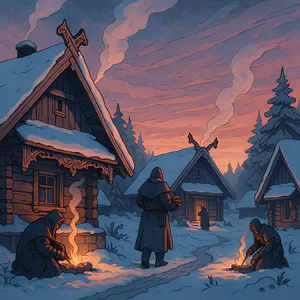Generate slavic names
More Real Name Generators- <% result.name %>
Discover all Story Shack apps
Discover the Essence of Slavic Names
Slavic names are rich with history, culture, and meaning. Use these thought-provoking questions to inspire your creativity and find the perfect name for your character, whether they are a hero, a villain, or a mythical creature.
- What cultural heritage does your character embody, and how should their name reflect that?
- What traits or qualities define your character, and how can their name symbolize those attributes?
- Is your character's name meant to evoke strength, wisdom, or perhaps a connection to nature?
- How does your character's name relate to their family history or lineage?
- What emotions or stories do you want your character's name to convey to the audience?
Frequently Asked Questions
Here are some common questions about the Slavic Name Generator and how it can help you find the perfect name for your characters.
How does the Slavic Name Generator work?
The generator combines various Slavic linguistic elements and cultural influences to create unique names with each click.
Can I specify the type of name I want?
Currently, you can't specify; however, you can regenerate names until you find one that resonates with your character's essence.
Are the names unique?
The names are randomly generated; with unlimited clicks, you'll discover a diverse range of options, though some may share similarities.
How many names can I generate?
You can generate an unlimited number of names; simply click 'Generate' as many times as you like.
How do I save my favorite names?
You can copy a name instantly by clicking on it, or use the heart icon to save it for later reference.
What are good slavic names?
There's thousands of random slavic names in this generator. Here are some samples to start:
- Niko Verba
- Sinisa Slowacki
- Lech Vassiliev
- Zelek Vaida
- Vojtech Vodenicarovic
- Dragica Fedoruk
- Dragica Orlov
- Velizara Wessely
- Draga Sendula
- Cvijeta Mrdakovic
About the creator
All idea generators and writing tools on The Story Shack are carefully crafted by storyteller and developer Martin Hooijmans. During the day I work on tech solutions. In my free hours I love diving into stories, be it reading, writing, gaming, roleplaying, you name it, I probably enjoy it. The Story Shack is my way of giving back to the global storytelling community. It's a huge creative outlet where I love bringing my ideas to life. Thanks for coming by, and if you enjoyed this tool, make sure you check out a few more!























































